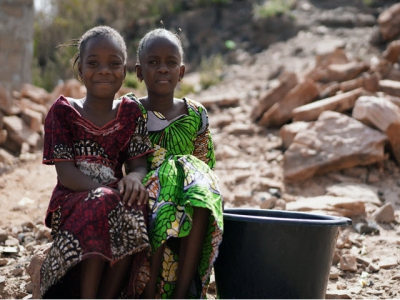The aquaculture project that aims to beat bilharzia

Aquaculture could play a key role in reducing bilharzia – a debilitating infection that affects more than 200 million people worldwide.
The project will concentrate on the Ivory Coast and Brazil
The infection – also known as snail fever or schistosomiasis – is caused by a parasite that lives in fresh water in subtropical and tropical regions, including areas of Africa, South America, the Caribbean, the Middle East and Asia. Humans are typically infected through parasite-hosting snails and the majority of people infected tend to be children or the elderly.
A research team led by the University of Stirling is now investigating how the snails – and ultimately the spread of infection – can be controlled by using aquaculture to boost the populations of native snail predators, including West African freshwater prawn (Macrobrachium vollenhovenii) and West African lungfish (Protopterus annectens). By considering the role of aquaculture in producing these predators, the team will take a “one health” approach to solving both a public health problem and providing an economic and food security solution at the same time.
Professor Rachel Norman and Professor Dave Little, of Stirling’s Faculty of Natural Sciences, are principal investigators on the project, which also involves a range of international partners.

Prof Rachel Norman
Professor Norman said: “Populations of schistosomiasis-carrying snails are increasing as their habitat expands through the installation of dams in many parts of sub-Saharan Africa and South America. Significantly, as well as enhancing their living environment, the dams also prevent their natural predators – which are often already overfished – from reaching the growing populations.
“In some areas, these predators have been reintroduced above dams, causing schistosomiasis infection rates in humans to fall. However, the most popular approach for tackling the infection is through mass drug administration, to those people infected – but reinfection can occur within weeks. Other control strategies include improving local hygiene practices, using pest control chemicals and engineering waterways to decrease the snail habitat – but each of these approaches have their own problems.
“The long-term eradication of the disease relies on controlling snail numbers. Our research will consider a sustainable longer-term biological control strategy – protecting predator populations and using aquaculture – to limit snail numbers.”
Disease caused by the schistosome worm can be disabling, and can include organ failure, bowel cancer and an increase in the chances of contracting HIV/AIDS.
The new project – funded by the Belmont Forum – will focus on Brazil, which suffers the highest schistosomiasis rate in the Americas, and Cote d’Ivoire, which also has a high disease prevalence. Both countries are particularly vulnerable to the infection due to regions of persistent poverty and vulnerability to climate change, the accelerated construction of dams and canals, and the expansion of agriculture as human populations increase.
The team will investigate the effect of increasing temperatures, temperature variability and the shift in precipitation patterns caused by climate change on the dynamics.
They will also conduct initial feasibility and nutritional studies and market analyses of the aquaculture of freshwater prawns and/or lungfish native to Brazil and the Ivory Coast – with the objective of using them as long-term biological control agents of the snails. This work will ensure continued effectiveness by promoting the development of small-scale aquaculture business.
Finally, the project will develop machine-learning algorithms to enable computers to quickly and accurately identify potential infection-hosting snails and parasites from mobile phone images. The technology will be used to track future changes in the distribution and abundance of the snail hosts.

Prof Dave Little
Professor Dave Little, of Stirling’s Institute of Aquaculture, said: “We don’t expect there to be a one-size-fits-all approach to eradicating schistosomiasis in Brazil and the Ivory Coast but this type of control – using natural predator population enhancement – can be an effective tool in the fight against this infection.
“By helping these predator species recover in infection hotspots, infection rates will decrease and it also has the potential to enhance local food security, provide farmers with an added source of income, and ensure predator population recovery projects are sustainable by generating profit.
“Our new approach is important in the drive towards schistosomiasis elimination and will also combat malnutrition and enhance food security in some of the world’s most deprived areas. In addition, it will enhance economic security for farmers and for those involved in the fishing industry – who have observed falling catch rates due to overfishing and climate change.”
Có thể bạn quan tâm
Phần mềm

Phối trộn thức ăn chăn nuôi

Pha dung dịch thủy canh

Định mức cho tôm ăn

Phối trộn phân bón NPK

Xác định tỷ lệ tôm sống

Chuyển đổi đơn vị phân bón

Xác định công suất sục khí

Chuyển đổi đơn vị tôm

Tính diện tích nhà kính

Tính thể tích ao hồ



 Shrimp market sees positive signs
Shrimp market sees positive signs  Prices of pangasius is below the production price,…
Prices of pangasius is below the production price,…